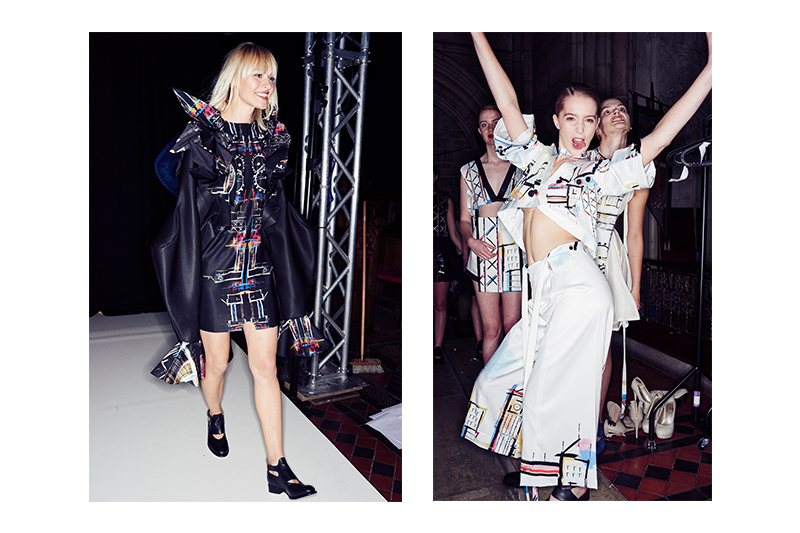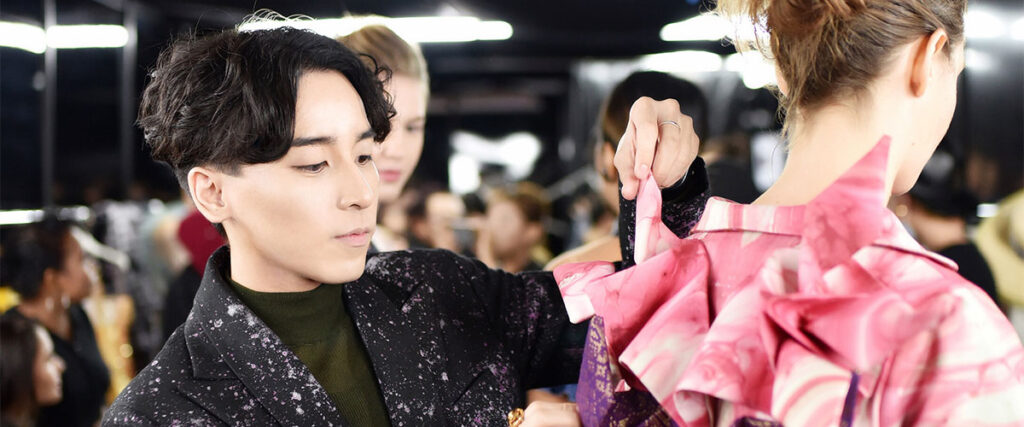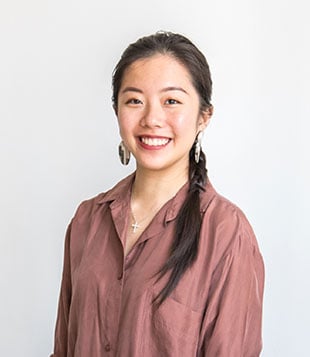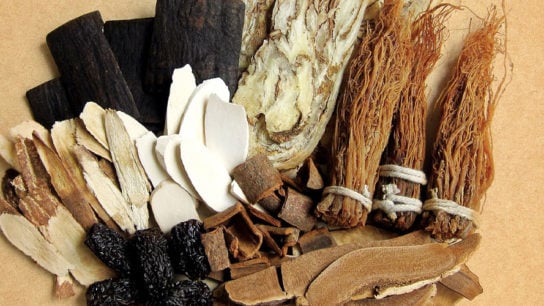Angus Tsui, designer and founder of his own eponymous fashion brand, is demonstrating to all fashion-savvy Hongkongers that dressing green doesn’t necessarily mean sacrificing on style.
In this era of fast fashion, the clothing industry is growing apace – but so too is our awareness of its cost to our environment. Over 10,000 yards of cloth are used each season just to make samples for one brand, and each year in Hong Kong alone, a mind-blowing 110,000 tonnes of textile garments are sent to landfills. No longer able to ignore the devastating impact throwaway fashion culture is having on the world, designers are sitting up, listening and taking action. One such creative is Angus Tsui, a 25-year-old, Hong Kong-born designer striving to create avant-garde fashion that pushes the boundaries of sustainability as much as it strikes an aesthetic chord. His ideas and practices are taking hold – he won EcoChic Designer of the Year in 2014, the year he founded his business, and now sells via his own website as well as at the iconic department store Isetan in Tokyo. Loved by celebrities for its futuristic, colourful vibe, Angus Tsui the label is showing that fashionable doesn’t need to mean irresponsible. Here, the man, tells us how.

Angus Tsui’s lightbulb moment came in 2012 when he was attending an upcycling workshop hosted by ethical British fashion designer Orsola de Castro, also known as the ‘upcycling queen’ in the fashion industry. Deeply inspired by her ethics, Angus came to the realisation that designers needed to play a far more active role in the sustainable development of fashion. “It’s an obligation for us designers, who have the innovative mind and the medium to communicate with different parties, to advance the whole apparel industry into a greener business,” he begins.
Since then, bringing sustainable designs to the local fashion scene has been Angus’s main creative prerogative. “Back in the day, eco-fashion was stigmatised as simply being outfits made out of newspaper or garbage bags,” he explains. “I wanted to build a brand that shatters these misconceptions, to show consumers that eco-friendly fashion is something with quality, that we are not creating just garbage.” Two years later, the Hong Kong Design Institution graduate put this initial concept into practice and launched his label.
Angus Tsui, the brand, is the epitome of what sleek and stylish sustainable fashion should be. Making their apparel out of recycled offcuts, stocked fabrics from factories and even fabrics made out of plastic bottles’ fibers, Angus and his partnering team of local artisans combines unwanted materials with sustainable methods and has put together a total of 7 colourful and avant-garde collections based on locally-inspired themes such as cityscapes, Chinese opera and Hong Kong movies.
As Angus notices, to make the clothing industry anywhere near sustainable, the responsibility lies not only with brands, manufacturers, and retailers, but also with us, the customers. “Fast fashion products are inexpensive, they go with trends, but they’ve been shaping unhealthy shopping habits among us. Coupled with problems of over-consumption in our city, Hong Kongers now treat their clothes in a much too careless way, because they can always get new ones without much cost,” he says.
With brands like Stella McCartney and Patagonia leading the way, along with increasing government initiatives, eco-friendly fashion is slowly gaining traction among Hong Kong locals. Taking advantage of such growing interest, Angus has been partnering with multinational companies like Swire Properties and fashion giant H&M as well as local communities to bring about a systematic change in the fashion scene. Because for Angus Tsui, a real change can only come through the joint efforts of the community. “Weaving all these green and ethical practices into the business is neither a commercial act in response to the trend of doing sustainable fashion, nor should it be a gimmick, but rather, a social responsibility we all bear. If all designers come together, I’m convinced that we can create something bigger, and have a far greater impact.”





